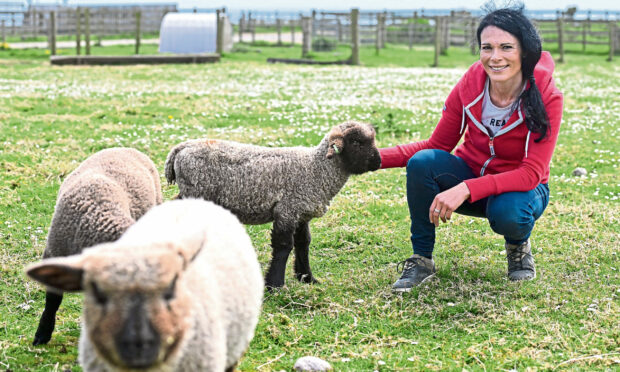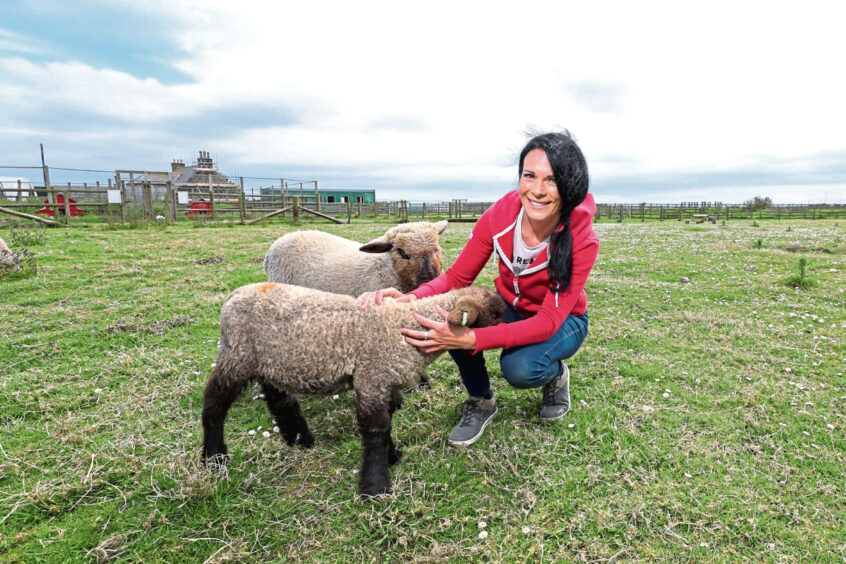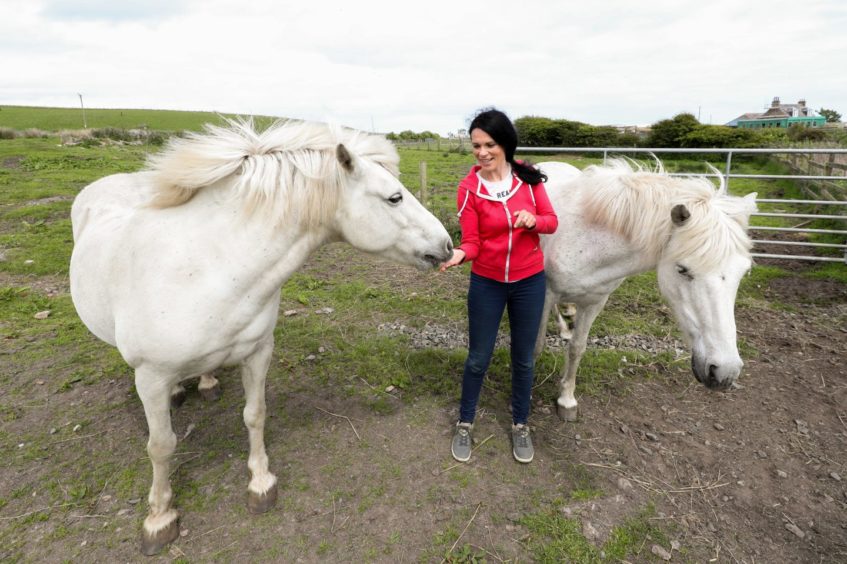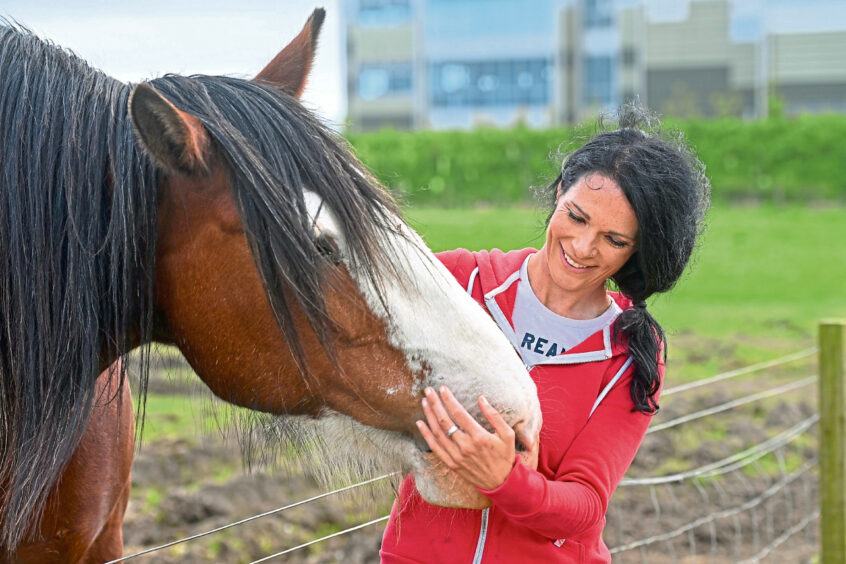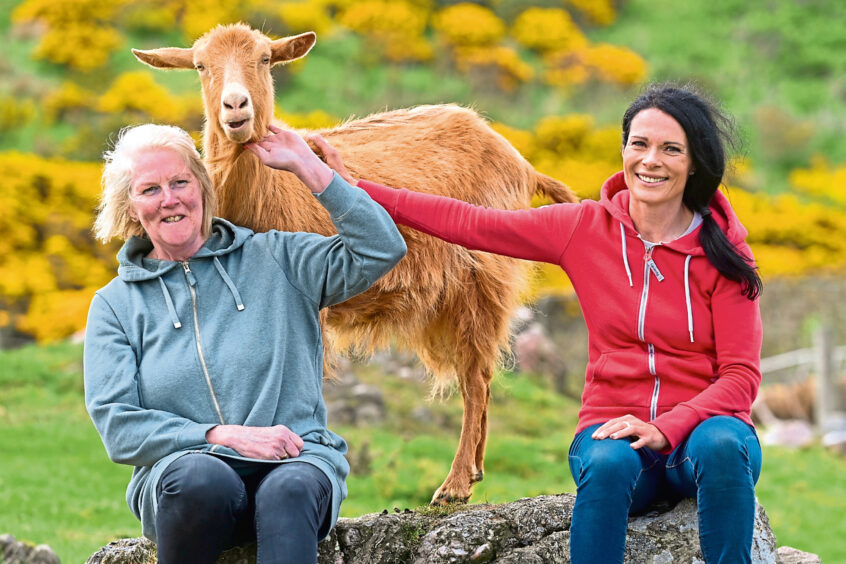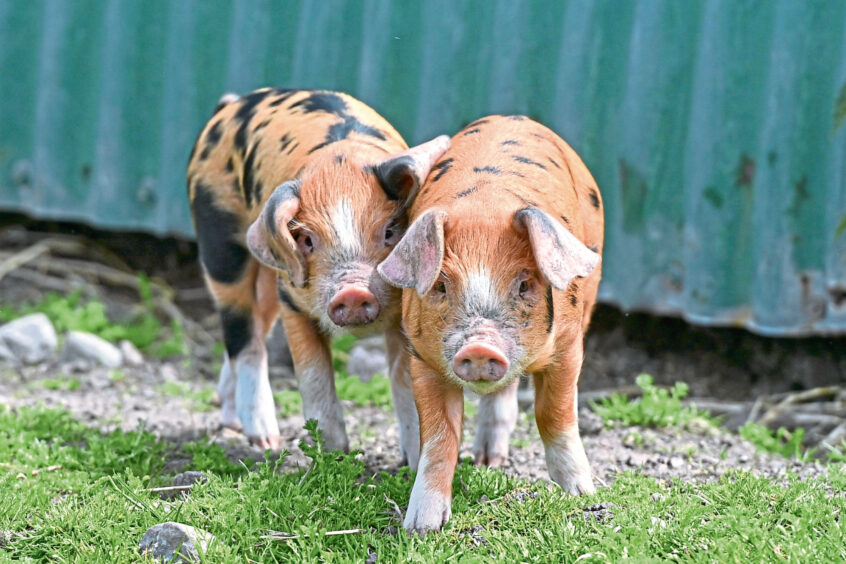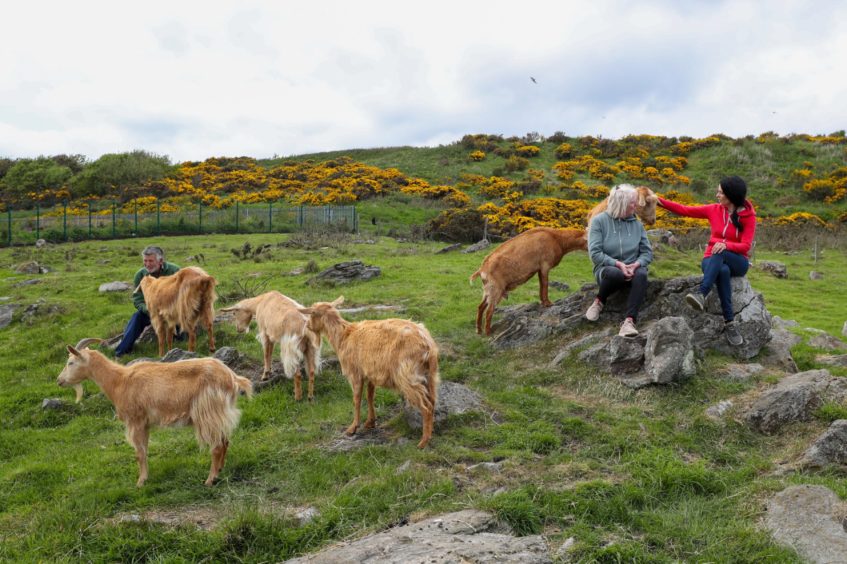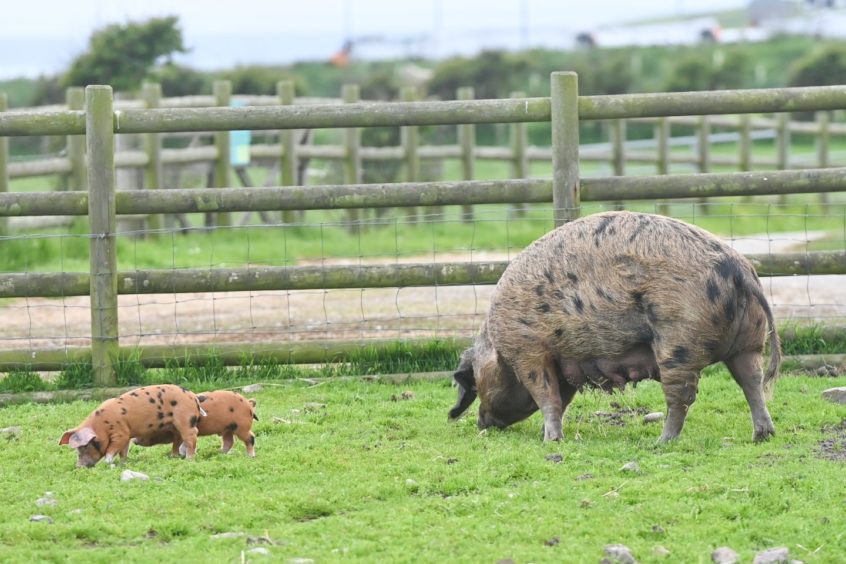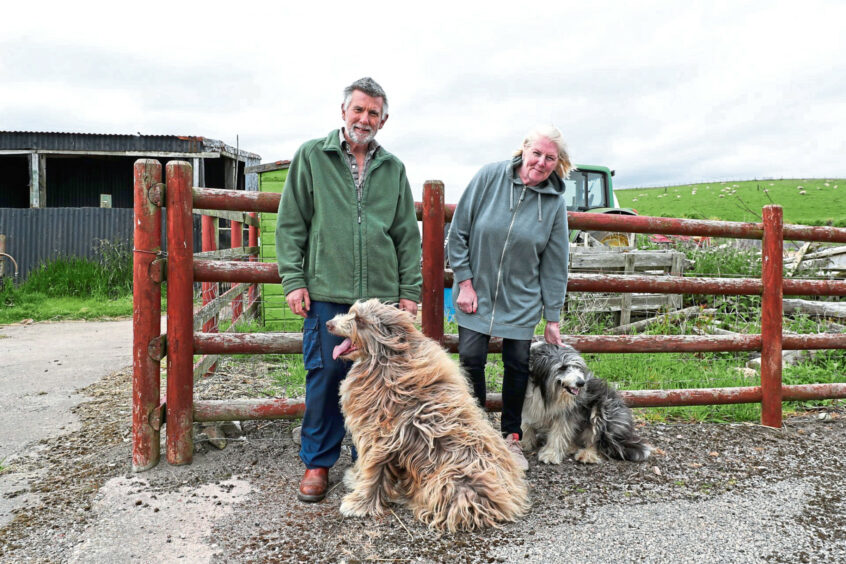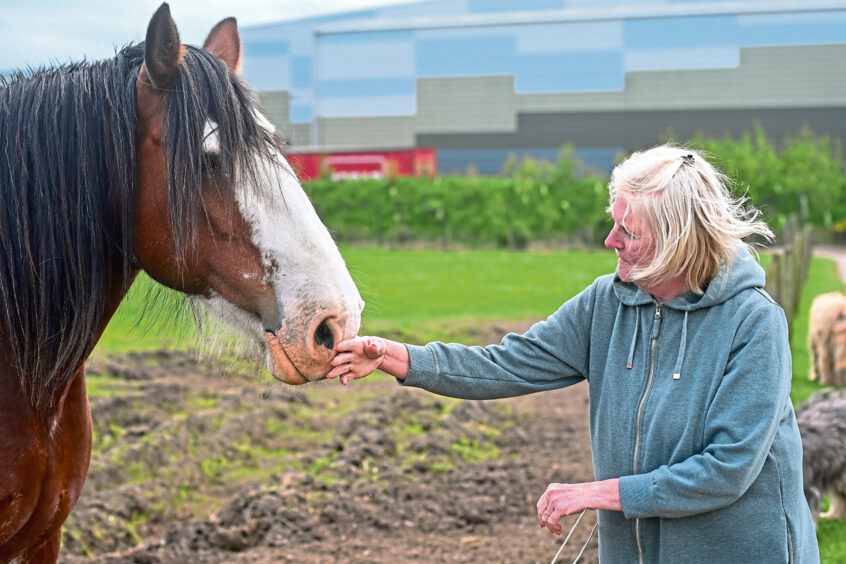Gayle visits Doonies, one of Scotland’s largest rare and endangered animal farms, and is saddened to hear its future is in jeopardy.
It’s a windy Wednesday afternoon, and I’m cuddling cute lambs, ponies and goats galore.
I’m at Doonies Rare Breeds Farm, a few miles south of Aberdeen between Nigg Bay and Cove, and I’m in animal heaven.
Like many folk across the north of Scotland and beyond, I’ve been a fan of Doonies for decades, enjoying trips here since I was a wee girl.
It’s a fabulous place for all ages, not only because it gives people the chance to get up close and personal to a wide and unusual range of fluffy four-legged friends (and some birds), but also because of its educational value.
During lambing season, the farm ran live updates online, introducing viewers to new arrivals and taking them through the intricate process step-by-step.
They also post regular broadcasts raising awareness about breeds under threat and those at risk of extinction.
But people who visit in person (the farm reopened in late May) are in for a treat.
Love ponies? You’ll love Misty and Rhona, the two friendly Eriskay ponies.
They’re both in their 20s and among the remaining 300 Eriskay ponies left in the world.
There’s also gorgeous Clydesdale Hazel, who was born without one eye. It’s not long since she lost her mum, but she’s a gentle giant keen on cuddles and treats.
A goat fan? There’s a whole herd of them at Doonies, and cheeky Charlie is super friendly. Just watch he doesn’t grab hold of your hair bobble or pinch your hat!
The cutest creatures, in my opinion, are the lambs – Norfolk Horn, Oxford Down and Greyface Dartmoors – which, with their black button noses, resemble stuffed toys.
I’m lucky enough to get special access to cuddle and stroke the woolly beasts who gently nuzzle and nudge at me, no doubt wondering where the feed bucket is.
Then, of course, there are the ridiculously sweet Oxford and Sandy piglets which leap and trot round their spacious enclosure, grunting with joy.
Other highlights include a Tamworth pig called Ruby, a bottle-fed English Longhorn calf whose mum struggled to provide him with milk, a snoozing Oxford Sandy boar and an array of birds including Silkie and Scots Grey chickens, Pekin bantams and a variety of geese.
As I walk around meeting the animals with farm manager Graham Lennox and his wife Debbie, it’s clear to see the couple have a lot of love for all breeds.
When we reach the goats’ field, Debbie lights up, and she’s in her element when the animals cluster round her, all desperate for a scratch and a treat.
As a counsellor, she hopes to offer “pet therapy” sessions with animals at Doonies.
“It’s nice for people to be able to walk and talk and meet animals around the farm,” she explains. “It’s very calming.”
Anyone who comes to Doonies is sure to smile; the animals tend to have that effect on you.
There’s also a playpark and a sensory garden, complete with atmospheric wind chimes for visitors to enjoy.
However, there’s a sense of impending doom hanging over the future of the farm, which greatly saddens me.
The site forms part of a 70-acre patch of land which has been earmarked for use as an “energy transition zone”, focusing on developing the low-carbon and renewable sectors.
Graham, who has held the farm’s tenancy since 2010, says he’s heard nothing from planners and local authorities after more than a year of discussions about building the “major base for clean energy” on the 134-acre site and nearby St Fittick’s Park.
He says the conservation site, which houses 23 rare breeds of pig, cattle, sheep, horses and chickens, has been left “in limbo” about its future.
“Doonies has been here since the ’70s, when it was run by the council, but we came here to manage it in 1995,” he explains.
“The council threatened to axe it in 2010, so that’s when we took on the lease, as a last resort. Our lease runs out in 2025 so our future is looking bleak.
“Nobody has come to discuss the energy transition zone project with us, or about how it might affect us, so we feel very much in the dark.”
Last year, locals were urged to come forward to oppose plans that could signal the end for Doonies – the only conservation park in Scotland to be approved by the Rare Breeds Survival Trust.
It’s not only a popular destination for families, nurseries and schools wanting to see the animals, but is a working conservation farm. It’s also visited by college and university students studying land economy and agriculture, who gain valuable insight into the rare breeds housed here.
“Lots of kids come here from the city and learn about the animals and where their food comes from,” says Debbie.
“It’s the only chance many people have to get this close to rare breeds, so it’s a great asset.
“We’d be devastated to see it close as generations of people have enjoyed Doonies.”
It would be a crying shame if that were to happen. Fingers crossed those at the forefront of the energy transition project will realise the true value of this fantastic facility and secure its future.
- For more details, check out the Doonies Rare Breeds Farm page on Facebook.
